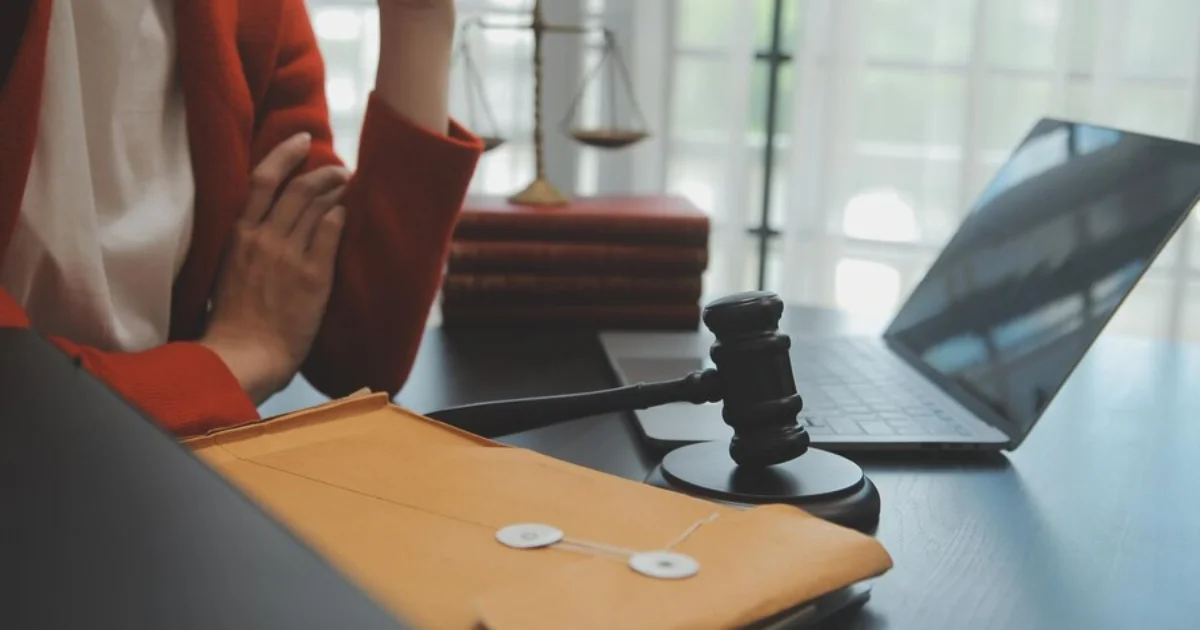Introduction
When life takes an unexpected turn and you find yourself facing a personal injury in Kennesaw, Georgia, it’s crucial to have the right legal representation by your side. The process of hiring an injury attorney can be daunting, but with the right guidance, you can make an informed decision to protect your rights and secure the compensation you deserve. learn more birth injury
In this comprehensive guide, we will explore the important aspects of finding the right injury attorney in Kennesaw.
Understanding Personal Injury Cases
What is a Personal Injury Case?
Personal injury cases encompass a wide range of incidents, from car accidents to slip and falls. Understanding what qualifies as a personal injury case is the first step in seeking legal assistance.
The Importance of Legal Representation
Explore why having an injury attorney on your side can significantly impact the outcome of your case. Learn about the nuances of personal injury law in Kennesaw.
Finding the Right Injury Attorney
Researching Local Attorneys
Discover the importance of conducting thorough research to identify potential attorneys in Kennesaw. We’ll delve into online resources, reviews, and referrals.
Initial Consultations
Learn what to expect during your initial consultation with a potential attorney. This step is crucial in determining if you have found the right fit.
Experience Matters
Understand why the experience of your attorney matters. We’ll discuss the significance of choosing a lawyer with a proven track record in personal injury cases.
Evaluating Attorney Qualifications
Credentials and Certifications
Explore the credentials and certifications that you should look for when evaluating an attorney’s qualifications.
Success Rate and Past Cases
Discover how to assess an attorney’s success rate and past cases to gauge their effectiveness in handling personal injury claims. learn more birth injury
Legal Fees and Payment Options
Contingency Fees
Learn about the common payment structure for personal injury attorneys, known as contingency fees. We’ll explain how this benefits you as the client.
Additional Costs
Discuss potential additional costs associated with hiring an attorney, such as court fees and expert witness expenses.
Building a Strong Case
Gathering Evidence
Find out how to gather crucial evidence to support your personal injury claim. We’ll cover the types of evidence that can strengthen your case. learn more birth injury
Negotiating with Insurance Companies
Learn the intricacies of negotiating with insurance companies and why having an attorney can make a substantial difference in the outcome.
Negotiating with insurance companies can be a complex and sometimes challenging process, but it’s a crucial step in seeking compensation for your personal injury in Kennesaw. To help you navigate this aspect of your case effectively, here are some key points to keep in mind:
Understand Your Policy
1. Understand Your Policy
Before entering negotiations with an insurance company, it’s essential to thoroughly understand your insurance policy. Review your coverage, including any applicable deductibles and limits. Knowing the details of your policy will help you gauge the potential outcome of your negotiation.
2. Consult with Your Attorney
If you’ve hired a personal injury attorney in Kennesaw, consult with them before engaging in negotiations. They can provide valuable guidance and handle the communication with the insurance company on your behalf. Having an attorney can significantly strengthen your negotiation position.
3. Gather Evidence
Having strong evidence to support your claim is crucial when negotiating with insurance companies. This evidence may include medical records, accident reports, witness statements, and any other relevant documentation. The more substantial your evidence, the stronger your negotiation position.
Be Prepared for Questions
4. Be Prepared for Questions
Insurance adjusters will likely ask you questions about the accident, your injuries, and other related matters. Be truthful and concise in your responses. Avoid making speculative statements or admitting fault, as these can be used against you.
5. Document All Communication
Keep records of all communication with the insurance company. This includes emails, letters, and phone calls. Document the date, time, and content of each interaction. These records can serve as valuable evidence if disputes arise during negotiations.
Calculate Your Damages
6. Calculate Your Damages

Determine the full extent of your damages, including medical expenses, property damage, lost wages, and pain and suffering. Having a clear understanding of your losses will help you establish a reasonable settlement amount.
7. Initial Offer Evaluation
When the insurance company makes an initial offer, it’s essential not to accept it immediately. Insurance companies often start with a low offer to test your willingness to negotiate. Your attorney can assess whether the offer is fair and advise on whether to counter.
8. Be Patient
Negotiating with insurance companies can be a time-consuming process. It’s not uncommon for negotiations to go back and forth several times before a settlement is reached. Patience is key to securing a fair outcome.
Consider Mediation or Arbitration
9. Consider Mediation or Arbitration
If negotiations stall or if you cannot reach a satisfactory agreement, you may explore mediation or arbitration as alternative dispute resolution methods. Your attorney can guide you through these processes.
10. Know When to Take Legal Action
If negotiations fail to yield a fair settlement, you may need to pursue legal action by filing a personal injury lawsuit. Your attorney can advise you on when it’s appropriate to escalate your case to the court system.
Remember that insurance companies aim to minimize payouts, and negotiating with them can be challenging. Having an experienced personal injury attorney by your side is often the most effective way to ensure that your rights are protected and that you receive fair compensation for your injuries and losses.
Going to Court
When Litigation is Necessary
Explore the circumstances under which going to court may be necessary to secure the compensation you deserve.
Court Procedures and Timelines
Understand the legal procedures and timelines involved in a personal injury lawsuit in Kennesaw.
Conclusion
In summary, hiring an injury attorney in Kennesaw is a crucial step in ensuring that your rights are protected and that you receive the compensation you deserve after a personal injury. By conducting thorough research, evaluating qualifications, and understanding the legal process, you can navigate this challenging time with confidence.
Frequently Asked Questions
1. How much does it cost to hire a personal injury attorney in Kennesaw?
The cost of hiring a personal injury attorney in Kennesaw often depends on a contingency fee basis. This means that you only pay if you win your case. The exact percentage can vary, so it’s essential to discuss fees during your initial consultation.
2. How long does it take to resolve a personal injury case in Kennesaw?
The duration of a personal injury case can vary widely depending on factors like the complexity of the case and whether it goes to trial. On average, it can take several months to several years to reach a resolution.
3. Can I handle my personal injury case without an attorney?
While it’s technically possible to represent yourself, it’s not advisable in most cases. Personal injury law can be complex, and insurance companies have legal teams working to minimize payouts. Having an experienced attorney greatly improves your chances of a favorable outcome.
4. What types of personal injury cases do attorneys in Kennesaw handle?
Personal injury attorneys in Kennesaw can handle a wide range of cases, including car accidents, slip and falls, medical malpractice, and more. It’s essential to find an attorney with experience in your specific type of case.
5. How do I schedule an initial consultation with a Kennesaw injury attorney?
To schedule an initial consultation with an injury attorney in Kennesaw, you can typically call their office or fill out a contact form on their website. During this consultation, you can discuss your case and assess if they are the right fit for you.






